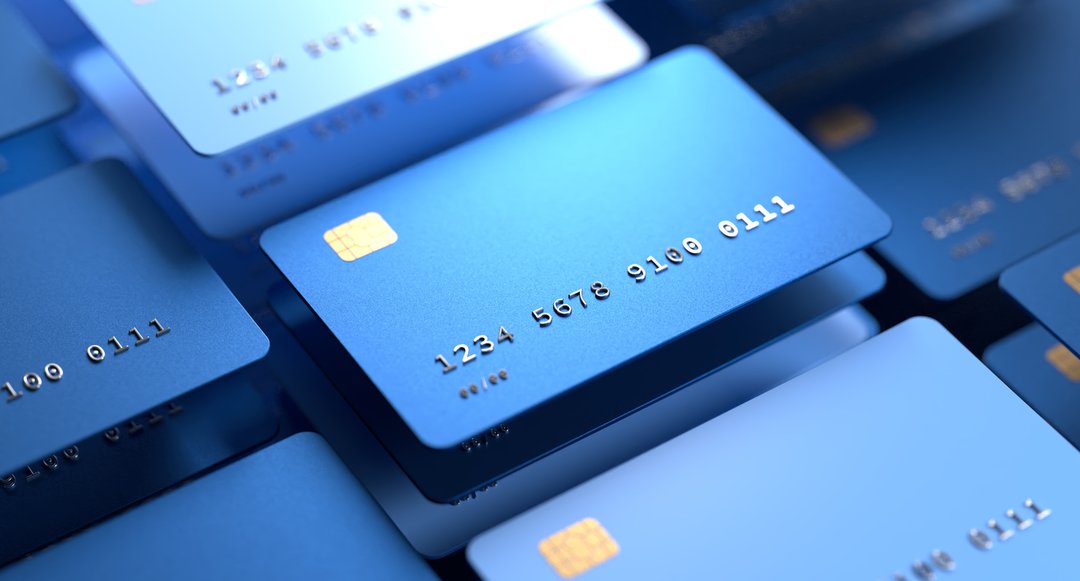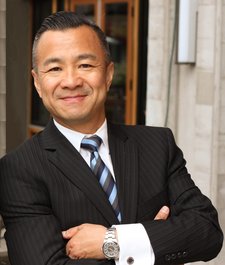
Salmaan Farooqui
Oct. 10, 2024
Getting a credit card may be easy, but picking the one that’s right for you is a lot more complicated. Maybe your bank teller sold you on one with a rewards program and you went with it. Maybe you got a basic card years ago and never bothered with rewards at all.
But when you choose a card with a rewards plan that best complements your spending habits, a credit card becomes an extremely effective tool to fast-track big purchases if you’re a disciplined spender. The benefits and rewards that come with certain cards can not only get you free flights and hotel stays with added perks, but can help you save on everyday expenses such as grocery and gas bills.

iStock-1437406190
There are a dizzying number of options out there, and it’s easy to be overwhelmed. So we spoke to credit card experts to help you simplify the process of choosing a card with a few easy questions: Should you use a credit card with a fee? How do you choose between one offering cash back and another that earns you rewards points? And are those luxury cards with enormous $600 fees ever worth it?
Let’s dispel one common misconception – you don’t always need to bank with a credit card provider to get one of their cards. Another important point is that you need to ensure you pay off your balance in full each month: If you start paying the hefty interest fees on credit cards, the charges will quickly outweigh the benefits of rewards.
Here’s a look at some of the most important factors to consider.
Some cards charge an annual fee, and whether that type of card is right for you depends on how much you plan to use it. If your answer resembles “a lot” or “often,” then a credit card with a fee is generally a better deal, says Barry Choi, a credit card expert at moneywehave.com.
“A lot of people can’t psychologically get over paying a fee for a credit card,” Mr. Choi said. “But when you look at the benefits, quite often it’s worth it.”
Credit cards with a fee come with more bells and whistles, such as travel and rental car insurance or airport lounge passes. And importantly, you’ll earn more points for the rewards program you’re in.
Take CIBC’s Aeroplan credit cards for example. If you spend $1,250 a month on regular expenses and $200 on groceries and gas, you’d earn 6,000 more points per year – and 20,000 more points in the first year – with the Aeroplan Visa Infinite card ($139 annual fee) compared with the no-fee version of the card. The difference in the first year is enough to redeem an extra return flight to the United States. And that’s not taking into account other perks, such as the free checked bag you get on all Air Canada flights with Aeroplan Visa Infinite cards.
Jon MacLeod, a product specialist with moneyGenius, said consumers who spend at least $1,000 per month will generally receive enough points to offset their fee.
On the flip side, if you don’t trust yourself to use your credit card responsibly, or if you only want a credit card for emergencies, a no-fee card makes more sense.
“For someone who just wants to keep their credit history active or use a card casually, why pay a fee when you don’t have to,” said Mr. Choi, who said those users can still benefit from rewards cards that don’t have a fee.
There are some great free cards out there that give you rewards and some features like insurance, such as the TD Cash Back Visa Card and Scotiabank American Express Card.
Generally speaking, reward points will usually have a better dollar value than cash back, says Erin Kerr, director of client relations with milesopedia.ca.
Your choice here depends on your your financial goals and where you spend your money. Is travel a big priority in your life? Then choose a reward programs geared towards travel and hotels, because they offer some of the best value right now.
Or do you often shop at retailers owned by Loblaw (No Frills, Shoppers Drug Mart, Wholesale Club, etc.) or Empire (Sobeys, Safeway, IGA, etc.)? Programs that revolve around brand loyalty can get you great points earnings and equally great redemption values within those stores.
Mr. Choi says cash back tends to benefit people who want a simple rewards program that they don’t have to think too much about, and Ms. Kerr says it can be ideal for people who don’t travel or families looking for ways to save.
Mr. Choi adds that RBC is one of the few banks that allow you to directly use your cash back rewards towards financial goals like paying off your mortgage or investing in stocks, making it a great option.
Many premium cards, such as the American Express Platinum card, come with annual fees of around $600 to $800, and the biggest benefits revolve around around travel rewards like free lounge access. Card providers generally recommend an income of around $150,000 for these cards, but experts say this isn’t usually a strict rule.
These cards do offer better earn rates for reward points, but the real value is often in the travel benefits. Features like priority boarding and free access to airport lounges can quickly make the hefty fee worth it if you travel often.
Some of these cards also offer large welcome bonuses and yearly gift cards, such as a $200 dining voucher that American Express Platinum members receive each year, Mr. Choi said.
Mr. MacLeod says his own American Express Aeroplan Reserve card came with companion passes for flights that saved him $1,600 on airline tickets.
However, these enhanced travel rewards are generally a luxury that only high-earning families will be able to take advantage of.
As a result, these expensive cards will generally only be worth it for families that travel often, or people who often travel in economy for business and could benefit from all the extra perks.
If you’re curious whether these cards are right for you, Mr. MacLeod said they’re worth a try because the welcome points bonus in the first year is so generous that it generally offsets the annual fee for that year. That means you can still get your money’s worth if you eventually cancel.
There are two key things to think about here. First, not all rewards programs are created equal. Second, having flexibility with your points is important.
On the first point, the dollar value you’ll get for your hard-earned points depends on the health of the loyalty program you’re with. For example, Air Miles in the past has seen the value of its points drop as retailers left the program. That program is getting better after being taken over by the Bank of Montreal, but experts are still concerned about whether it can hold up its pace.
Mr. Choi says Aeroplan and Scene+ remain some of the strongest points programs in the country and offer some of the best value for their points. He also said Canadian Tire’s rewards credit cards are a great niche option.
The other consideration is how flexible your points are. For travel rewards, Ms. Kerr recommends Aeroplan because your points can be used with all of Air Canada’s partner airlines around the world, whereas rewards programs with smaller airlines like WestJet are more limited for destinations.
Mr. Choi said American Express and RBC’s Avion rewards also offer great flexibility because their points can be transferred at equal value for other rewards programs.
Ms. Kerr added that people who are unsure of what points program is best for them can always start with the no-fee version of a rewards card before committing to paying annually for a card with optimal points earnings.
“You always hear about people redeeming, but you see the end result and not the time getting to it,” said Ms. Kerr. “It’s not a race.”
Are you a young Canadian with money on your mind? To set yourself up for success and steer clear of costly mistakes, listen to our award-winning Stress Test podcast .
This Globe and Mail article was legally licensed by AdvisorStream.
© Copyright 2024 The Globe and Mail Inc. All rights reserved.


